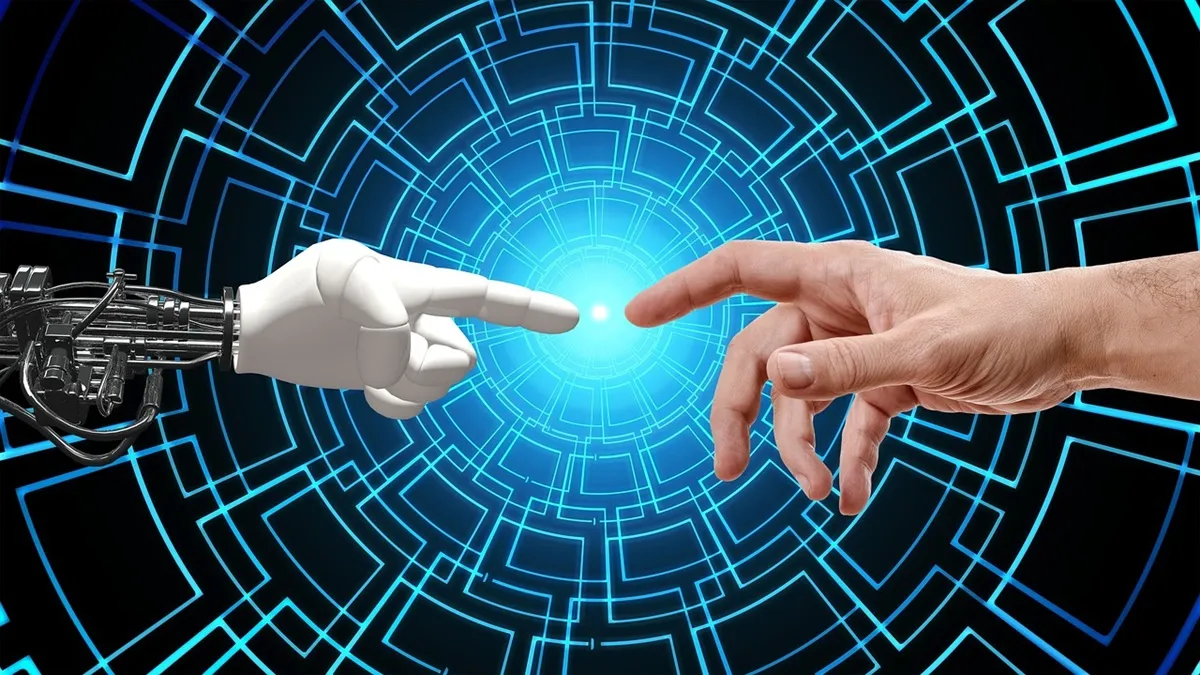Which sectors have experienced a decline in job opportunities due to AI?
As an AI-driven lead generation company’s CEO, I’ve noticed the impact of AI on employment, especially in areas like manufacturing, customer service, and transportation, where job opportunities have diminished.
In the manufacturing sector, AI and automation integration has drastically reduced manual labor requirements. Robots and automated systems are now handling tasks from assembly to quality control. For example, in the automotive sector, it’s estimated that automation could impact up to 20% of jobs. Robots powered by AI are increasingly taking over tasks previously done manually, leading to a reduced demand for unskilled labor.
Customer service has been transformed by AI. Many human roles are being replaced by chatbots and automated systems. These AI solutions efficiently handle customer queries and support, resulting in fewer opportunities for entry-level customer service jobs. Research indicates that AI could automate about 30% of customer service roles.
The transportation sector is also changing due to autonomous vehicle development. The emergence of self-driving trucks and drone delivery systems is slowly decreasing the demand for human drivers in logistics and delivery services. It’s estimated that autonomous driving technology could affect a significant number of driving jobs in the coming two decades.
In summary, while AI boosts efficiency and innovation, it also presents challenges to traditional employment in specific sectors like manufacturing, customer service, and transportation. It’s vital to find a balance between technological advancement and maintaining sustainable employment practices.
What sectors have seen a positive impact from the emergence of AI?
Observing AI’s impact across various industries, I’ve noted significant positive shifts, especially in healthcare, IT and software, education, and marketing.
Healthcare has been revolutionized by AI. AI algorithms are crucial in early disease detection and tailored treatments, improving patient outcomes. The AI healthcare market is expected to reach billions in value, signifying advancements in treatment and research and development, thus creating numerous new opportunities in this field.
The IT and software industry has seen a marked increase in demand for AI expertise. The growth rate for roles like data scientists, machine learning engineers, and AI ethics specialists has been impressive, often surpassing annual growth rates of 30-40%. This expansion reflects the diverse applications of AI in creating a variety of new job roles.
Education has been revolutionized by AI, with personalized platforms and adaptive programs enhancing learning experiences. This sector is witnessing significant investments in AI-driven educational tools and technologies.
Marketing has been transformed by AI’s ability to analyze consumer data. The efficiency of AI in marketing strategies has led to an increase in roles focused on data analysis and AI-driven market research, with companies investing heavily in AI marketing tools. Overall, these sectors show how AI can not only enhance efficiency and outcomes but also generate new job opportunities and roles, showcasing its extensive impact.
What is AI’s role in altering employment opportunities?
From my perspective on AI’s influence in the job market, it’s evident that AI both diminishes and augments employment opportunities across various sectors.
AI reduces job opportunities in sectors dependent on routine tasks. In manufacturing, automation and robotics have significantly cut down the need for manual labor. Research suggests that up to 25% of manufacturing jobs could be automated. In customer service, AI-driven chatbots and automated systems are becoming more common, potentially affecting a large portion of entry-level support roles. In transportation, autonomous driving technology is on the rise, with predictions indicating it could impact a significant number of traditional driving jobs in the next two decades.
Conversely, AI is a driving force for new job opportunities, especially in roles requiring complex analysis and decision-making. The IT and software industry has seen a spike in demand for AI specialists, data scientists, and machine learning engineers, with these roles’ annual growth rate exceeding 35%. In healthcare, AI advancements have led to new roles in medical technology and research, with the AI healthcare market expected to expand significantly. The education and marketing sectors are adapting, with a growing need for professionals skilled in AI-driven content creation and data analysis.
AI’s impact on employment is complex: it challenges traditional job roles in some sectors while creating new, often more technically advanced, opportunities in others. This shift underscores the importance of adaptability and continuous learning in AI-affected areas.
Which sectors are most affected by AI in terms of employment?
Based on my observations, AI has a significant effect on employment in sectors like manufacturing, customer service, finance, and marketing. In manufacturing, AI and automation are reshaping the industry. It’s estimated that up to 20% of manufacturing tasks could be automated, leading to fewer manual labor roles. However, this also creates new opportunities in tech-focused roles such as programming, maintenance, and system management, where skilled worker demand is rising.
Customer service has been transformed by AI implementation. Chatbots and automated response systems, capable of handling many customer interactions, are reducing the need for human staff in routine inquiries. This has led to new, more complex customer service roles that require human judgment and empathy, with AI expected to handle about 15% of customer service interactions by 2023.
In finance, AI is influential in areas like fraud detection and risk assessment, where it’s estimated that AI can cut fraud detection times by up to 70% and increase detection accuracy. The demand for professionals skilled in AI and data analytics within finance is growing, as AI’s ability to analyze large data sets for insights becomes increasingly valuable.
Marketing is significantly impacted by AI. The use of AI in analyzing consumer behavior and personalizing marketing strategies is becoming more common. AI-driven marketing tools are expected to account for a significant portion of marketing budgets, leading to a rise in demand for professionals skilled in AI-based market analysis and digital marketing strategies.
Overall, AI is reshaping the job market, reducing roles in repetitive tasks while creating new, more technically advanced opportunities, particularly in sectors like manufacturing, customer service, finance, and marketing. This highlights the importance of adaptability and skill development in the AI-influenced job market.
Which job roles are positively or negatively affected by AI?
I have seen AI’s varied impact on job roles, offering both challenges and opportunities across different sectors. Job roles negatively impacted are mainly in sectors where AI and automation can replicate routine tasks. In manufacturing, roles involving manual assembly and basic quality checks are being replaced by automated systems and robots. A report suggests that automation could affect up to 25% of jobs in these sectors. In customer service, AI-driven chatbots are taking over entry-level positions that handle standard queries. Research shows that AI could automate about 30% of customer service roles. In transportation, autonomous vehicles present a future threat to traditional driving jobs, especially in trucking and delivery services, with a potential automation of up to 22% of work hours.
On the positive side, AI is generating demand for new skill sets and roles. In the tech sector, there’s an increasing need for AI specialists, data scientists, and machine learning engineers. The demand for these roles has seen an annual growth rate of over 40%. These professionals are crucial in developing and refining AI algorithms and systems. Marketing and finance are also benefiting, with AI creating roles focused on data analytics, customer insights, and algorithmic trading, where AI’s role in financial assets management is projected to grow significantly.
While AI leads to a reduction in certain job roles, particularly those involving routine tasks, it simultaneously creates new opportunities in areas that leverage.
Sonakshi Pratap, a Chartered Accountant and a dynamic entrepreneur, began her career at KPMG India, honing her expertise in financial auditing. Her professional journey is marked by a transition from finance to technology, leading her to establish three successful ventures: Theekkardo.com, Kapso, and Leadzen.ai. As the Co-founder and CEO of Leadzen.ai, Sonakshi is at the forefront of revolutionizing B2B marketing through advanced AI and ML technologies.







